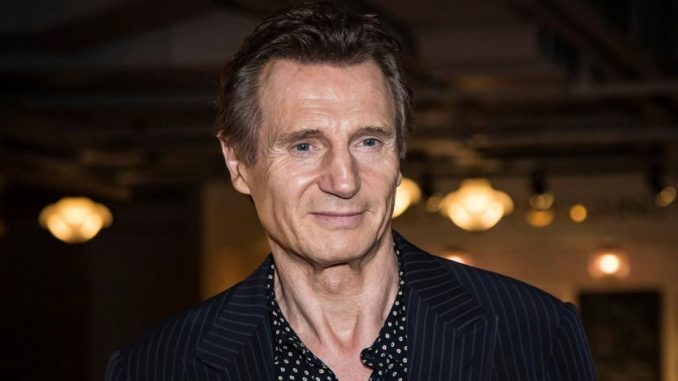
Tara O’Leary, Staff Writer |
Liam Neeson found himself under fire after sharing a problematic story during an interview with The Independent. The actor was there to promote his latest film, “Cold Pursuit,” but instead sparked controversy with racist comments.
It started when interviewer Clemence Michallon asked him about his character, Nelson Coxman, a man set out for revenge after his son is killed. Neeson began by talking about how his characters turn to anger, “there’s something primal – God forbid you’ve ever had a member of your family hurt under criminal conditions.” This reminded him of a personal experience that he had and the actor decided to share. Years ago someone he knew had been raped while he was out of the country. Upon his return, Neeson heard the news and asked his friend, “Did you know the person?” She said she didn’t. He then asked for the man’s race, to which she said “he was a black man.”
Filled with anger, Neeson set out looking for a fight. “I went up and down areas with a cosh, hoping I’d be approached by somebody,” he said, “I did it for maybe a week, hoping some ‘black bastard’ would come out of a pub and have a go at me about something, you know? So that I could kill him.” Neeson told the journalist that he was ashamed of what he did and that he had never admitted to it before. “I understand that need for revenge” he added, connecting the story back to his character, “but it just leads to more revenge, to more killing.”
His story was shocking to both the journalist and his co-star, Tom Bateman, who was sitting right beside him. Following the interview, Michallon contacted Laura Palumbo from the National Sexual Violence Resource Centre in Pennsylvania in order to find out more about Neeson’s harsh reaction. Palumbo explained that loved ones of survivors experience a secondary trauma that requires support, with many thinking of what they could have done differently. She also stated that men often think they should be “protectors” and that they feel powerless after a loved one has been attacked. “They want to harm the person who did this to their loved one” she said. “There’s that strong desire to redeem power, to redeem control.”
It was these comments from Neeson that sent the story viral with the “Taken” star’s name trending on Twitter as many reacted to what he said. One user said, “Well, I’ve seen it all now. Liam Neeson admitted to going around trying to find a black person to kill because someone he was close to got raped by a black person and the journalist spoke to a psychologist to help contextualize his racism and included it in the article? WILD.”
“Being upset someone attacked your family is understandable,” @ItsTheSafePlace tweeted, “but targeting innocent black men for a week with a weapon, when you didn’t even know who did it is racist. Do you know how many innocent black people have lost their lives in the past for stuff like this? THIS IS NOT OK.” This user brings up a very good point, as the issue of attacks on innocent black people are still very relevant today. Just recently Empire actor Jussie Smollett was the victim of a hate crime, where two men attacked him while using racist and homophobic slurs. Racism is not a problem of the past and it isn’t something that Neeson can nonchalantly admit to. His words were problematic but they weren’t the only issue. He acted on a thought out plan for a week. Neeson never attacked anyone over that week because he was hoping to pick a fight and have his victim throw the first punch, so that his attack could be spun as self-defense.
Following the incident, the actor appeared on Good Morning America in hopes of clearing the air. “I’m not racist,” said Neeson, “This was nearly 40 years ago.” The 66-year-old argued that he would’ve done the same thing regardless of the attacker’s race. “If she had said an Irish or a Scot or a Brit or a Lithuanian it would – I know it would – have had the same effect,” he said, “I was trying to show honor, to stand up for my dear friend in this terribly medieval fashion.” GMA’s Robin Roberts asked Neeson what he hoped the teachable moment of this situation was. He replied that he hoped for others to “talk about these things.”
Leave a Reply